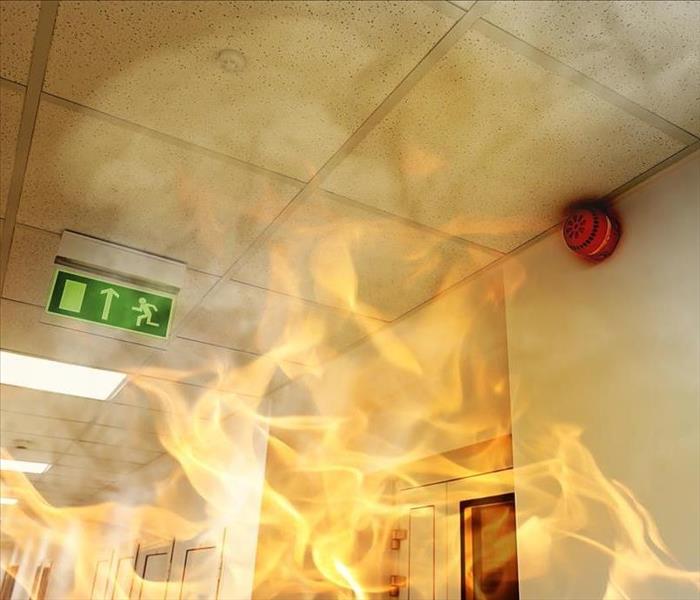Answering Common Questions About Partial Fire Losses
4/13/2022 (Permalink)
Not every commercial blaze results in the total destruction of a property. You could end up with a partial fire loss, instead.
A partial loss can also occur if there is damage to an adjacent building. The smoke or extreme heat could migrate toward your property. The fire retardant used by first responders could harm your premises, as well. Whether the partial loss results from a fire in your building or a nearby one, there are some things you should know about making an insurance claim.
Common Questions About Partial Fire Losses
Should You Get the Property Inspected for Fire and Smoke Damage?
Sometimes, the damage caused by a fire is obvious. However, this is not always the case. If there has been any kind of blame in or near your Bountiful, UT, property, you should get it inspected by a qualified professional.
Your insurance provider will likely send an adjuster to survey the area. Yet this is not sufficient. You should also hire a structural engineer or contractor to evaluate the structural integrity of the building. You may also want to bring in an industrial hygienist to check the air quality. This is particularly important if you or any of your employees have asthma or severe allergies. Ideally, the inspection should cover:
- Windows
- Roofing
- Interior Walls
- Heating and Plumbing Systems
- Concrete and Siding
The inspector should also estimate the cost of fixing your premises. You will likely need to hire fire restoration professionals to clean the property and repair any damaged assets.
Will Your Insurance Pay for Mold, Smoke and Ash Cleanup?
A fire loss does not only include the harm caused by the blaze itself. There could also be ash or smoke damage. Rugs, curtains and fabrics could develop lingering odors. The ash could also stain tile or marble.
If the flames caused your building's sprinkler system to activate, the water from those sprinklers could encourage mold growth, as well. Mold can be particularly prevalent on wet drywall. Any fire-related holes in your walls or roof could additionally allow rain to enter the property, potentially sparking a mold infestation.
Will your insurance pay for these damages?
It depends on your policy, but ash and smoke are typically covered. Any porous materials should be given to a restoration professional. The expert can then help you decide whether the items can be salvaged or should be replaced.
Mold damage, however, is not always covered by insurance. Many companies have mold exclusions, so you will have to talk to your adjuster or read over your policy to find out if you have any coverage.
Will Insurance Cover Landscaping Damage?
The smoke and heat from the fire could also destroy any plants outside your property. Your policy should have some coverage, but it may be limited. For instance, most policies only pay $500 for each damaged tree, yet a mature tree can be worth several thousand dollars. Some plants may appear fine after the fire yet die over time. You should thus keep open your insurance claim for several months in case you have to make any additions to it.
A partial fire loss can still be quite expensive. Thankfully, a decent commercial insurance policy should cover at least some of the costs.






 24/7 Emergency Service
24/7 Emergency Service